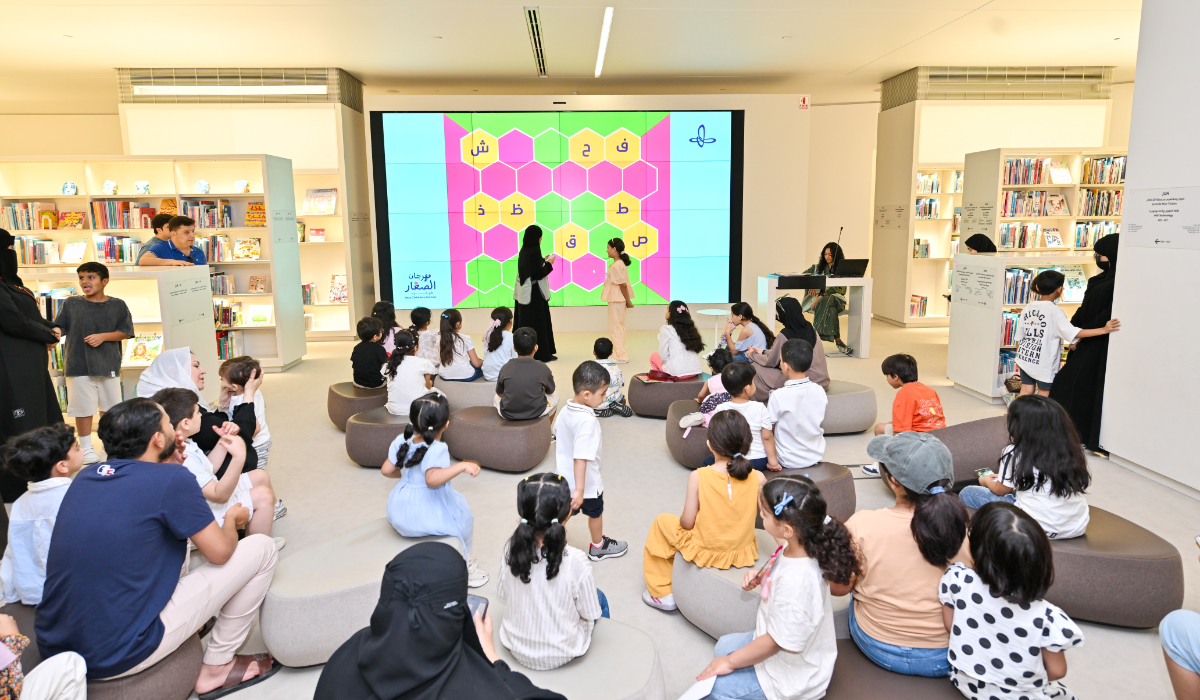RIYADH: Saudi Arabia on Wednesday hosted the first meeting of a new global alliance aimed at establishing a Palestinian state.
In his opening remarks in Riyadh, Foreign Affairs Minister Prince Faisal bin Farhan reaffirmed the Kingdom’s position in support of Palestinian independence and “the right of the Palestinian people to determine their own fate and end the occupation.”
“The region is witnessing an escalation and continuation of Israeli aggression on Palestine and Lebanon,” he said. “The escalation of this conflict regionally and maybe internationally urges us all to take a firm and immediate stance to put an end to the crimes and violations committed by Israel. Convictions and partial solutions are no longer enough.”
He urged the international community to come together to increase joint efforts in finding a two-state solution for the return of security and stability and anchoring peace in the region and “translate this determination into a tangible reality through working steps and a definitive timeline.”
Prince Faisal also reaffirmed the Kingdom’s request for an immediate ceasefire, the release of all hostages and detainees, activating accountability mechanisms and ending policies of impunity and double standards for Israel, and ensuring the delivery of humanitarian aid without any obstacles.
Also at the meeting, which focused on access to humanitarian aid considering Israel’s recent ban on UNRWA operations, was Philippe Lazzarini, commissioner-general of the United Nations Relief and Works Agency for Palestine Refugees in the Near East.
“The vote by the Knesset against UNRWA this week is outrageous and sets a dangerous precedent,” Lazzarini said.
The Israeli government’s call for the dismantling of UNRWA had been made “an objective of the war in Gaza, in defiance of the General Assembly and Secretary Council resolution and of the International Court of Justice, including with a plan to replace UNRWA in East Jerusalem with settlements,” he said.
Describing Israel’s actions as a calculated attempt to unilaterally shift longstanding parameters for peaceful resolution in the Israel-Palestine conflict, Lazzarini warned of the implications of the bill on regional stability and international peace and security.
“For decades, Palestinians in the occupied Palestinian territory have endured the systematic denial of basic rights, segregation, a crippling blockade on Gaza, aggressive settlement expansion in the West Bank and repeated cycles of conflict,” he said.
Over the past year, “Gaza has been decimated.”
A total of 43,000 people are reported to have been killed in that time, most of them women and children. The majority of the population has been repeatedly displaced.
“Two million people have been trapped in a living hell for more than 12 months,” Lazzarini said.

Most of the population are now squeezed into 10 percent of the Gaza Strip where they must endure abysmal living conditions. In Northern Gaza, 100,000 people are under siege, “waiting for death by either an airstrike or starvation,” he said.
“Meanwhile, the occupied West Bank is on the brink of escalating conflict. Settler violence and military incursion by the Israeli security forces are a daily reality. Public infrastructure is destroyed systematically during military operations, inflicting collective punishment on Palestinians. The economy is on the verge of collapse and despair is growing,” Lazzarini said.
Emphasizing the importance of UNRWA operations, he said that for 75 years the agency had been a beacon of hope for Palestinian refugees, giving them access to fundamental rights such as education and healthcare.
“We have educated generations of students, many of whom have achieved remarkable success in the region and around the world.”
Lazzarini said that more than 600,000 children in Gaza are out of school and that failing to return to safe learning environments meant sacrificing an entire generation and paving the way for more hatred and extermination in the future.
“In times of war, UNRWA has been able to rapidly transform into a humanitarian machine.” In the blink of an eye, teachers turned into shelter managers and clinics shifted into emergency rooms during a near total collapse of the healthcare system, he said.
“Despite this, and perhaps because of it, we have faced a heavy price,” Lazzarini said. Adding that at least 247 of their colleagues have been killed, many along with their families, and almost 200 UNRWA buildings have been subject to damage or destruction, killing hundreds seeking UN protection. And, clearly labeled aid convoys have been targeted and looted by armed actors.
He continued: “Restrictions on the entry of lifesaving supplies into Gaza mean that aid trucks languish at the border while people starve a few kilometers away. Let us be clear, the attacks on UNRWA are attacks against the broader rule-based system inherited from World War II and will weaken a global, multilateral system.”
Lazzarini closed his remarks with a three-part plea to the members of the Global Alliance.
The first is to use all available political, diplomatic and legal tools to reject Israel’s attempt to dismantle UNRWA and undermine multilateralism and the work of the UN.
The second is to provide political and financial support to safeguard UNRWA’s goal during the ongoing plight to a ceasefire and the days after.
And the third is to find a viable path toward a two-state solution through the Global Alliance to resolve the Palestinian refugee crisis.
“If a United Nations agency with a general assembly mandate can collapse because one united nation member state is defying the international rule-based order, then what? What remains standing?”





































